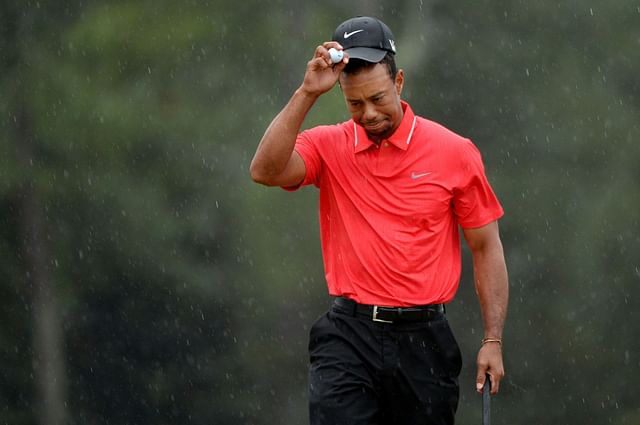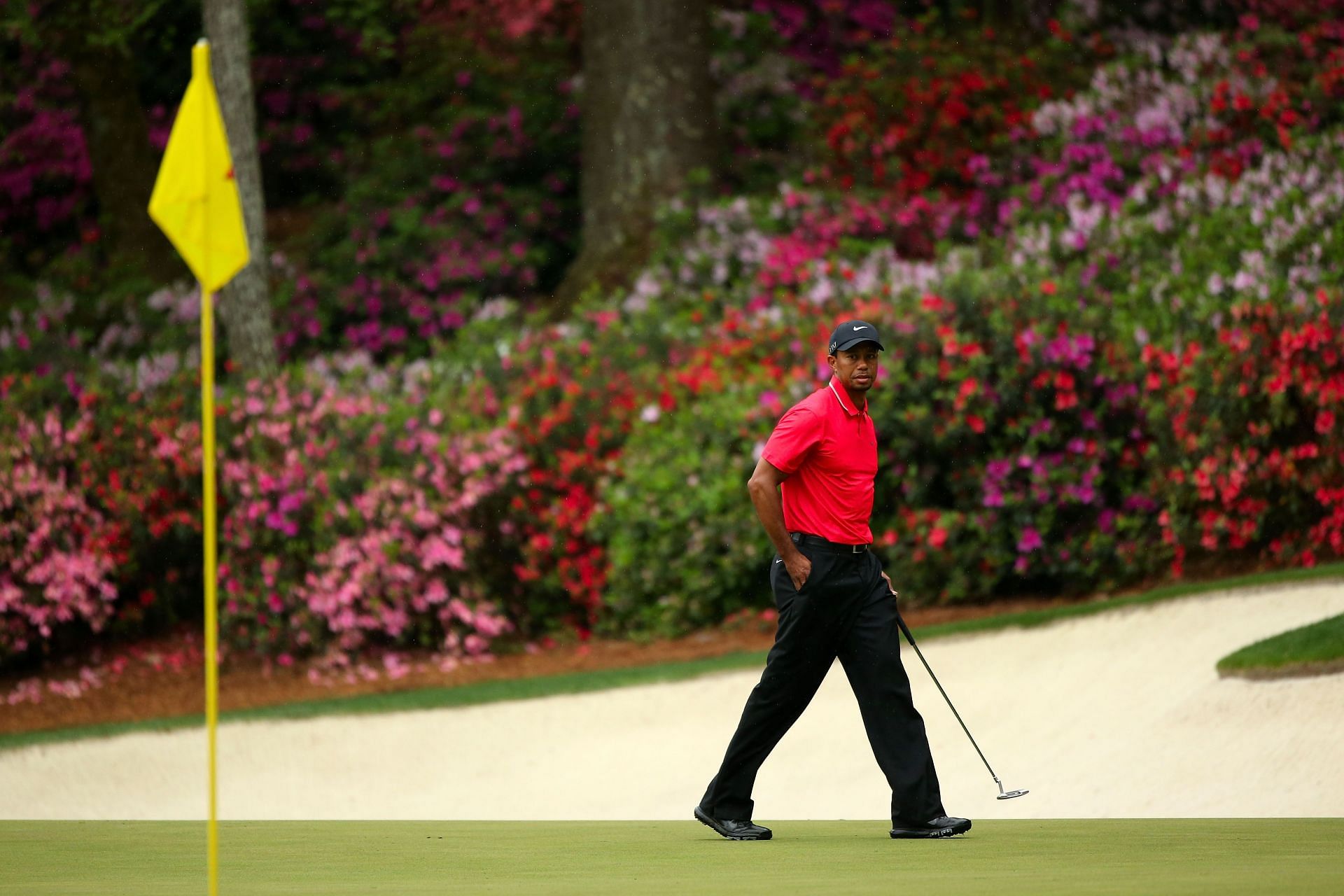Tiger Woods had a controversial outing in his 2013 Masters performance. He took a tie for the lead into a hole and sent a ball so well that it hit off the flagstick and rolled back into the hazard, forcing him to take a drop. He did so improperly, and he admitted to it later inadvertently. This caught the attention of former rules official David Eger.
Eger later would say that he replayed it in his mind three or four times before he made a call on it. He said via Talk Sport:
“I’m looking at something knowing there’s no divot hole when he played the [original] shot. And then there was a divot hole when he dropped. I could see that. And that’s why I kept replaying it to make sure. I hesitated on calling simply because I knew how controversial it was going to be.”
Ultimately, Tiger Woods is Tiger Woods, and Eger did not want to be the one who got the greatest golfer perhaps of all time removed from the prestigious tournament:
“If it would have been Joe Schmo, I would have called in, too. It didn’t matter. I was trying to save the player from being disqualified.”
It proved to be a rather massive scandal at the time, but things worked out fine thanks to Eger’s role in the situation.
Why Tiger Woods didn’t get disqualified in 2013
The current Augusta National chairman Fred Ridley, was then the chief rules official there at the time. He became aware of the incident, but he and his team decided not to confront Tiger Woods in the scoring tent.
However, once Woods confessed to it after the round, they had no choice but to address the issue which was quickly gaining steam. It was becoming a controversy, and they had to react.

Ultimately, they decided on a two-stroke penalty, giving Woods the score he would have had in the first place. Ridley said (via Talk Sport):
“Tiger was entitled to have the benefit of that decision when he signed his scorecard. And to me it would have been grossly unfair to Tiger to have disqualified him after our committee had made that decision [not to tell him].”
This didn’t wipe away the controversy, though. For example, Jordan Spieth was disqualified for incorrectly signing on a regular PGA Tour event this year. Such a mistake at the Masters should come with a harsh penalty, too.
However, it was ultimately Eger’s call-in that saved Woods from being kicked out. Per journalist Michael Bamberger (via Talk Sport):
“It spurred Ridley’s incorrect interpretation, which was challenged by Woods’ own comments to ESPN, which enabled Ridley to invoke Rule 33-7, the one that allows wrongs to be righted.”
Ultimately, it provided the necessary context for keeping Woods in the tournament. It really didn’t matter that much, though, as he did not finish atop the leaderboard. Impressively, despite all the dropped strokes from his mistakes, he still finished tied for fourth.
That penalty also didn’t prevent the victory. He was four strokes behind Angel Cabrera. It would have left him tied for third with Jason Day, but it did not prevent him from adding a 16th Major to his tally.






